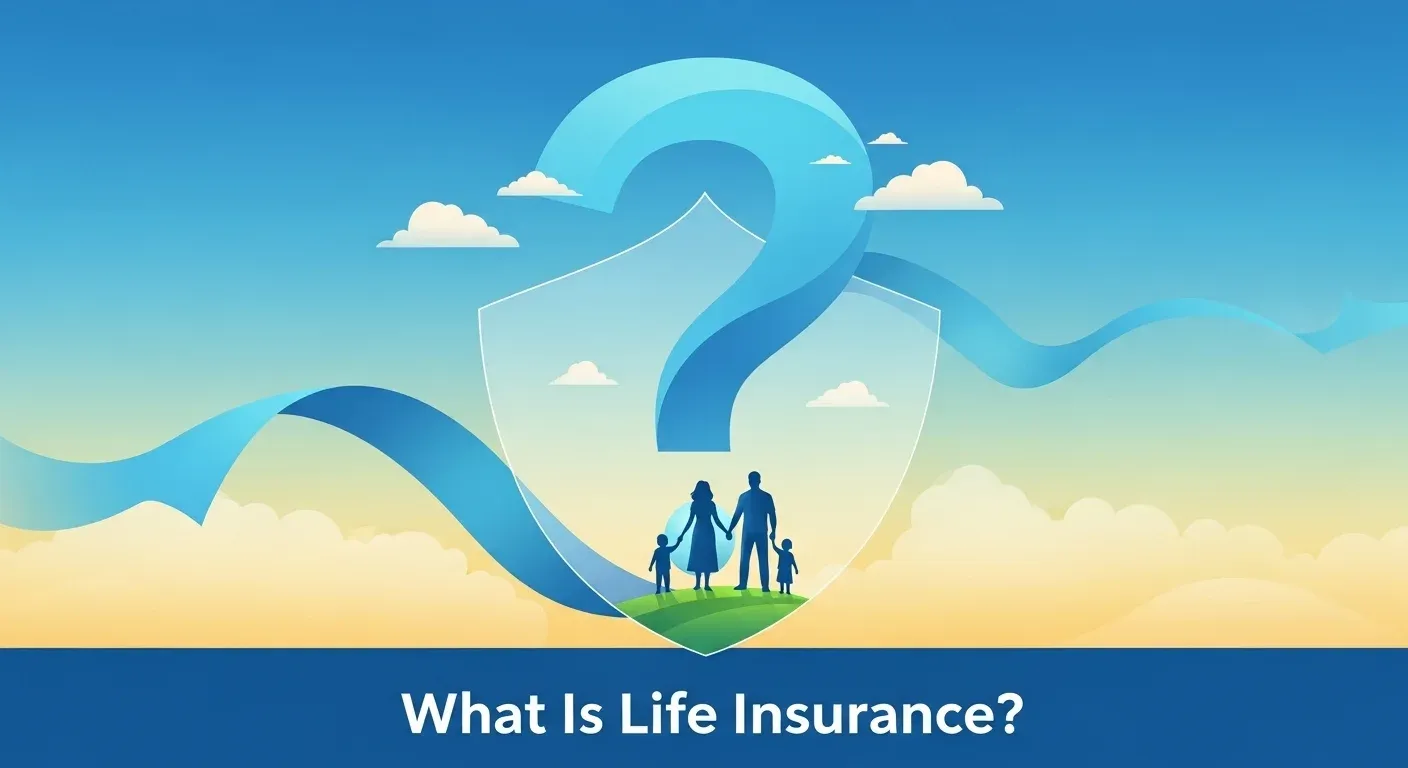
A Complete Guide On Life Insurance?
Life insurance is not something folks generally want to discuss but if you want your family to be taken care of in the future, it's something you absolutely cannot afford to do without. At its most basic, life insurance is a deal between you and an insurance provider. You pay a monthly or yearly premium, and the company pays a lump sum called a death benefit to the people you designate as beneficiaries upon your death.
Consider it this way: if you're the primary breadwinner in your home, how would your household pay bills if something were to happen to you? Could they afford the mortgage? College? Daily bills without your salary? That's what life insurance does; it plugs that money gap at one of life's worst moments.

A few life insurance policies have an additional cash value element that accrues over time. This makes some of these policies a two-for-one financial instrument: providing for your loved ones while also serving as a vehicle to save money on your behalf during your lifetime.
With the increasing cost of living and mounting financial obligations, life insurance is no longer a last resort, but an active measure in safeguarding your legacy and the people you care for.
The Various Kinds of Life Insurance
All life insurance isn't the same. Your budget, needs, and long-term objectives will dictate what type of policy works for you.

Term life insurance is perhaps the simplest. It insures you for a specified duration typically 10, 20, or 30 years. If you die within that term, the policy pays out. If you live longer than that, the policy lapses and coverage ceases. It's cheap and best for people with time-sensitive obligations such as a mortgage or raising kids.
Whole life insurance insures you for your whole life. In addition to a guaranteed death benefit, it accumulates cash value over time. That cash value compounds at a guaranteed rate and can be borrowed or withdrawn. Premiums are more expensive, but you're accumulating a financial asset while also leaving a legacy.
Universal life insurance adds flexibility to the equation. You can change your premiums and death benefit as your life changes. It also accumulates cash value, which can earn interest based on plan type. If your income is irregular or you prefer control over your policy design, this may be a practical option.
Variable life insurance is geared toward those comfortable with investment risk. It links your policy’s cash value to investment options like stocks or bonds. The growth potential is higher, but so is the risk. Poor market performance can reduce both your cash value and your death benefit.
Final expense insurance is a smaller, more basic policy that pays for end-of-life expenses, like funeral and burial costs. It's usually simpler to qualify for and doesn't even need a medical exam, so it's a big hit with seniors who want to free their families of all that expense.
How Life Insurance Works
Life insurance is straightforward in theory but has a few key elements you'll want to know before selecting a policy.
Premiums are the funds that you pay to maintain the policy. Premiums can be monthly, quarterly, or yearly. Age, health, lifestyle, and family medical history have an effect on the cost. The healthier and younger you are when purchasing a policy, the lower you will generally pay.

The death benefit is how much your loved ones get when you die. It's typically tax-free and can be spent however your family decides whether that's to pay off debt, pay for daily expenses, invest, or save for the future. You choose this amount when you purchase the policy, so it should be based on your immediate and future financial responsibilities.
Policy terms and conditions spell out how long you’re covered and the requirements for keeping your policy valid. For term life, the policy lasts a fixed number of years. Permanent policies last for life as long as premiums are paid. Most policies also include provisions about late payments, conversion options, and optional add-ons like disability or critical illness riders.
Permanent policies also have cash value accumulation, which is similar to an inbuilt savings account. Your premiums pay for this value over time, and you can one day use this to offset retirement income, pay for an emergency, or even contribute towards the premiums. Just remember that any loan or withdrawal will decrease your death benefit.
Why Life Insurance Matters
You plan for birthdays, holidays, and retirement but what about the surprise? Life insurance provides you with a means to plan for the one occurrence we all inevitably encounter, and do so from a place of concern not fear.
For families with dependents, it's keeping things stable. If your income were to suddenly vanish, would your partner be able to make mortgage payments? Could your kids remain in their schools? Life insurance guarantees that they can carry on without extreme financial sacrifices.

Even if you don't receive a paycheck, your job is still worth money. Stay-at-home parents put in work in the form of childcare, cooking, cleaning, and more. Replacing those services is costly, and life insurance can mitigate that blow.
It also serves as protection against debt. Student loans, car loans, credit cards, and more - debts don't disappear with death. Without coverage, they can become your family's burden.
In addition to needs, life insurance can also leave a legacy. It can pay for your child's education, charity of your choice, or act as a financial safety net for the next generation. For those families who do not have substantial assets or savings, it's an effective method of generating generational wealth.
And let's not overlook funeral expenses. A typical funeral can cost between $8,000 and $15,000. Life insurance can keep your family from having to tap into savings or go into debt at an already stressful time.
Need Help Selecting the Perfect Policy?
Selecting life insurance doesn't have to be confusing. The main thing is knowing what you want whether it's covering your family's day-to-day needs, providing an inheritance, or increasing your savings. Once you know what you want, it's very easy to find that with the appropriate policy.

If you don't know where to start, speaking to a professional will make all the difference. At Savvital, our advisors can guide you through your choices, clarify the small print, and assist you in selecting a plan that suits your lifestyle and budget.
Published on 7 Oct 2025
Author: Savvital Team